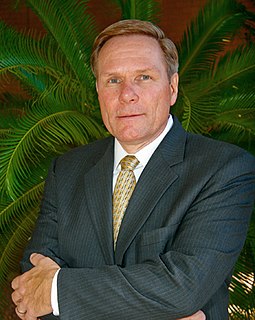A Quote by Joe Kaeser
Machines have the ability to assemble things faster than any human ever could, but humans possess the analytics, domain expertise, and valuable knowledge required to solve problems and optimize factory floor production.
Related Quotes
All experiments that are related to the games when you have humans versus machines in the games - whether it's chess or "Go" or any other game - machines will prevail not because they can solve the game. Chess is mathematically unsolvable. But at the end of the day, the machine doesn't have to solve the game. The machine has to win the game. And to win the game, it just has to make fewer mistakes than humans. Which is not that difficult since humans are humans and vulnerable, and we don't have the same steady hand as the computer.
The technologies that will be most successful will resonate with human behaviour instead of working against it. In fact, to solve the problems of delivering and assimilating new technology into the workplace, we must look to the way humans act and react. In the last 20 years, US industry has invested more than $1 trillion in technology, but has realised little improvement in the efficiency of its knowledge workers and virtually none in their effectiveness. If we could solve the problems of the assimilation of new technology, the potential would be enormous.
Gnomes live ten times faster than humans. They're harder to see than a high-speed mouse. That's one reason why most humans hardly ever see them. The other is that humans are very good at not seeing things they know aren't there. And, since sensible humans know that there are no such things as people four inches high, a gnome who doesn't want to be seen probably won't be seen... Wings.
Although humans today remain more capable than machines for many tasks, by 2030 machine capabilities will have increased to the point that humans will have become the weakest component in a wide array of systems and processes. Humans and machines will need to become far more closely coupled, through improved human-machine interfaces and by direct augmentation of human performance
The fact that cognitive diversity matters does not mean that if you assemble a group of diverse but thoroughly uninformed people, their collective wisdom will be smarter than an expert's. But if you can assemble a diverse group of people who possess varying degrees of knowledge and insight, you're better off entrusting it with major decisions rather than leaving them in the hands of one or two people, no matter how smart those people are.
Humans have an amazing capacity to believe in contradictory things. For example, to believe in an omnipotent and benevolent God but somehow excuse Him from all the suffering in the world. Or our ability to believe from the standpoint of law that humans are equal and have free will and from biology that humans are just organic machines.


































